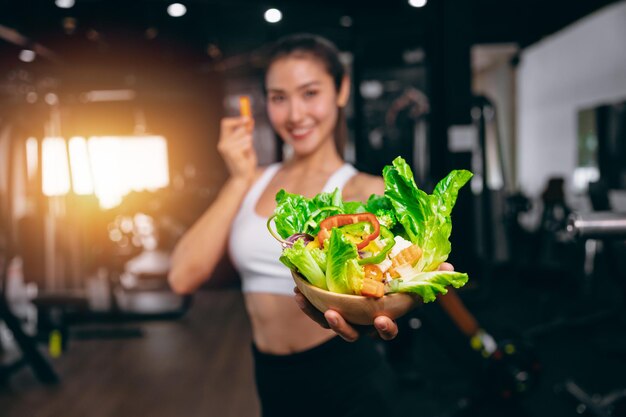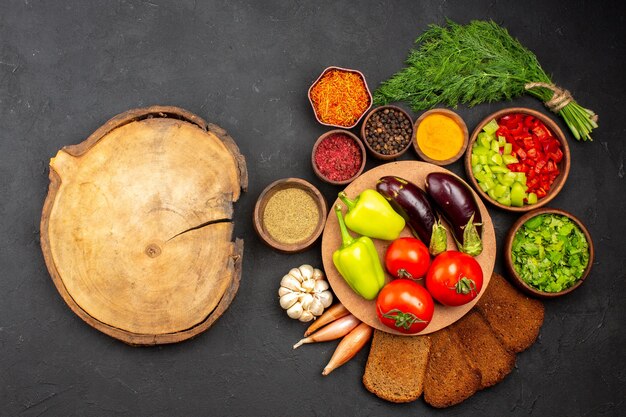Low Cholesterol Low Carb
You’ve probably heard the fitness world buzz with talk about “bulking” (gaining muscle) and “cutting” (losing fat). It can feel like you have to choose one or the other. But the truth is, you can actually lose weight and gain muscle simultaneously. so How Can u Reduce Cholesterol By Diet

It’s called “body recomposition.”
Think of it like this: Imagine you have a sculpture of clay. You can add more clay to make it bigger (bulking), or you can carve away parts to change its shape (cutting). Body recomposition is like both – you’re simultaneously removing fat (carving) and building muscle (adding).
Why Does a Balanced Diet Matter When You’re Trying to Transform Your Body?
Now, why is a balanced diet so crucial for this body transformation?
Well, imagine trying to build a house without the right materials. You need strong foundations, sturdy bricks, and quality wood. Similarly, your body needs the right fuel to build muscle and burn fat.
A balanced diet provides the essential building blocks:
- Protein: Think of it as the bricks for your muscles. It helps repair and build muscle tissue.
- Carbohydrates: These are your body’s primary source of energy, fueling your workouts and keeping you going throughout the day.
- Healthy Fats: These are vital for hormone production, which plays a key role in both muscle growth and fat burning.
By providing your body with the right nutrients, you’re giving it the tools it needs to achieve your goals.
Remember: This is just the beginning of our journey towards understanding the proper diet for weight loss and muscle gain. In the following sections, we’ll delve deeper into calorie control, macronutrient ratios, and much more. Stay tuned!
Calorie Control
Understanding Your Calorie Needs: The Foundation for Weight Loss and Muscle Gain

Before we dive into the specifics of what to eat, let’s talk about calories. Calories are like the currency of your body’s energy. To lose weight, you generally need to burn more calories than you consume (creating a calorie deficit). To gain muscle, you need to consume more calories than you burn (creating a calorie surplus).
Figuring Out Your Energy Expenditure: It’s Like Balancing a Budget
Now, how do you know how many calories you need? This is where understanding your Total Daily Energy Expenditure (TDEE) comes in. Your TDEE is the total number of calories your body burns each day, including:
- Resting Metabolic Rate (RMR): The calories your body burns at rest, just to keep your organs functioning.
- Physical Activity: The calories you burn through exercise and daily activities.
- Thermic Effect of Food (TEF): The calories your body burns to digest and process the food you eat.
There are online calculators and formulas that can help you estimate your TDEE. However, these are just estimates. The most accurate way to determine your TDEE is through tracking your food intake and weight changes over time.
Creating a Calorie Deficit or Surplus: The Key to Transformation

Once you have an estimate of your TDEE, you can start creating a calorie deficit or surplus.
- Calorie Deficit: To lose weight, you need to consume fewer calories than your body burns. This could involve reducing your calorie intake, increasing your physical activity, or a combination of both.
- Calorie Surplus: To gain muscle, you need to consume more calories than your body burns. This means eating more than your TDEE. However, it’s important to focus on consuming nutrient-rich foods to support muscle growth, rather than just empty calories.
Remember: Creating a significant calorie deficit or surplus can be challenging and may not be sustainable for everyone. It’s important to find a balance that works for you and your individual goals.
In the next section, we’ll delve deeper into the importance of macronutrients – protein, carbohydrates, and fats – and how to optimize your intake for weight loss and muscle gain.
Macronutrient Ratios
Protein: The Building Block of Muscle

Protein is often called the “building block of muscle” for a good reason. It’s essential for repairing and building muscle tissue after workouts. When you’re trying to gain muscle, consuming enough protein is crucial.
How Much Protein Do You Really Need?
The recommended daily allowance (RDA) for protein is 0.8 grams per kilogram of body weight. However, for individuals who are actively trying to gain muscle, a higher protein intake of 1.6-2.2 grams per kilogram of body weight may be beneficial.
Best Sources of Protein for Muscle Gain
There are many excellent sources of protein to choose from, including:
- Lean meats: Chicken, turkey, beef, pork
- Fish: Salmon, tuna, cod, haddock
- Eggs: A complete source of protein
- Dairy products: Milk, yogurt, cheese
- Beans and lentils: Plant-based sources of protein
- Tofu and tempeh: Soy-based protein sources
- Nuts and seeds: Almonds, walnuts, chia seeds, flaxseeds
Remember: It’s important to choose lean protein sources whenever possible, as they are lower in saturated fat.
Carbohydrates: Fuel for Workouts and Recovery

More Than Just Empty Calories
Carbohydrates often get a bad rap, but they’re an essential part of a balanced diet, especially for those who are active. Carbohydrates are your body’s primary source of energy. During workouts, your muscles rely on carbohydrates for fuel.
Complex Carbs vs. Simple Carbs: Know the Difference
It’s important to choose the right types of carbohydrates.
- Complex carbohydrates: These are found in whole grains, fruits, vegetables, and legumes. They are digested slowly, providing sustained energy.
- Simple carbohydrates: These are found in sugary foods like candy, soda, and white bread. They are quickly digested, leading to a rapid spike in blood sugar followed by a crash.
Carbohydrates for Muscle Growth and Recovery
Carbohydrates also play a crucial role in muscle recovery. After a workout, your muscles need to replenish their glycogen stores (stored carbohydrates). Consuming carbohydrates after a workout can help to speed up muscle recovery and prevent muscle breakdown.
Remember: The amount of carbohydrates you need will depend on your individual goals and activity level.
Healthy Fats: Essential for Hormone Production and Energy
Healthy Fats: Not All Fats Are Created Equal

You might be surprised to learn that healthy fats are essential for overall health and well-being, including muscle growth and fat loss.
The Importance of Healthy Fats
Healthy fats play several important roles in the body:
- Hormone Production: They are essential for the production of hormones, including those involved in muscle growth and fat burning.
- Energy Production: They provide a sustained source of energy and help your body absorb vitamins A, D, E, and K.
- Brain Function: They are crucial for brain health and cognitive function.
Best Sources of Healthy Fats
Good sources of healthy fats include:
- Avocados: A good source of monounsaturated fats.
- Nuts and Seeds: Almonds, walnuts, chia seeds, flaxseeds.
- Olive Oil: A source of monounsaturated fats.
- Fatty Fish: Salmon, tuna, mackerel, sardines.
Remember: While healthy fats are essential, it’s important to consume them in moderation. this will help reduce cholesterol by diet
Hydration: The Often Overlooked Key
Water: More Than Just Quenching Your Thirst

Hydration is often overlooked, but it’s absolutely crucial for overall health, weight management, and muscle recovery.
i’ve also covered a topic on Low Cholesterol Breakfast Powerhouses
Why Hydration Matters
Water plays many vital roles in the body:
- Nutrient Transport: Water helps to transport nutrients throughout the body, ensuring that your cells receive the fuel they need.
- Waste Removal: Water helps to flush out toxins and waste products from your body.
- Temperature Regulation: Water helps to regulate body temperature, preventing overheating during exercise.
- Muscle Function: Proper hydration is essential for optimal muscle function and performance.
Signs of Dehydration
Signs of dehydration include:
- Thirst
- Fatigue
- Dizziness
- Headache
- Dry mouth
- Decreased urine output
Remember: It’s important to stay hydrated throughout the day, especially during exercise and in hot weather.
i’ve also covered a topic on chicken Recipes Low Carb Low Cholesterol
Addressing Common Diet Mistakes
Common Diet Mistakes That Sabotage Your Goals

We’ve covered the basics of a healthy diet for weight loss and muscle gain. Now, let’s talk about some common diet mistakes that can hinder your progress.
Mistake #1: Excessive Restriction
One of the most common mistakes people make is severely restricting their calorie intake. This can lead to feelings of deprivation, fatigue, and even rebound weight gain.
Mistake #2: Over-Reliance on Processed Foods
Processed foods are often high in unhealthy fats, added sugars, and sodium. They can sabotage your weight loss and muscle gain goals.
Mistake #3: Inconsistent Eating Habits
Inconsistent eating habits can also make it difficult to reach your goals. Skipping meals or snacking on unhealthy foods can lead to blood sugar crashes, cravings, and overeating. this will destroy your Reduce Cholesterol By Diet
Remember: It’s important to be patient and consistent with your diet. Making small, sustainable changes is more likely to lead to long-term success.
VIII. Mental Health and Nutrition
Your Mind Matters: The Connection Between Mental Health and Nutrition

You might be surprised to learn that your mental health plays a significant role in your weight loss and muscle gain journey.
Mindful Eating: A Powerful Tool for Weight Management
Mindful eating involves paying attention to your body’s hunger and fullness cues. It encourages you to savor your food and eat without distractions.
Stress Management: A Key to Success
Stress can have a significant impact on your eating habits. When you’re stressed, you may be more likely to crave unhealthy foods or overeat. that Can not be Reduce Cholesterol By Diet
Remember:
- Prioritize stress management techniques such as exercise, yoga, meditation, or spending time in nature.
- Develop a healthy relationship with food, focusing on nourishing your body rather than restricting yourself.
Personalized Nutrition
Finding a Diet That Works for You

There is no one-size-fits-all approach to nutrition. What works for one person may not work for another.
Finding a Sustainable Approach
It’s important to find a diet that you can sustain long-term. This may involve experimenting with different approaches to find what works best for you.
Consulting with a Professional
If you’re struggling to reach your goals, and want Reduce Cholesterol By Diet consider consulting with a registered dietitian or a certified sports nutritionist. They can help you create a personalized nutrition plan that meets your individual needs and goals.
Remember:
- Be patient and persistent.
- Focus on making sustainable lifestyle changes.
- Celebrate your successes along the way.
Conclusion
By following these guidelines and making informed choices, you can create a sustainable and effective diet for weight loss and muscle gain. Remember that consistency, patience, and a focus on overall well-being are key to achieving your goals.
I hope this comprehensive guide has been helpful!
want to learn more about Cholesterol here is How Can I Reduce Cholesterol By Diet





